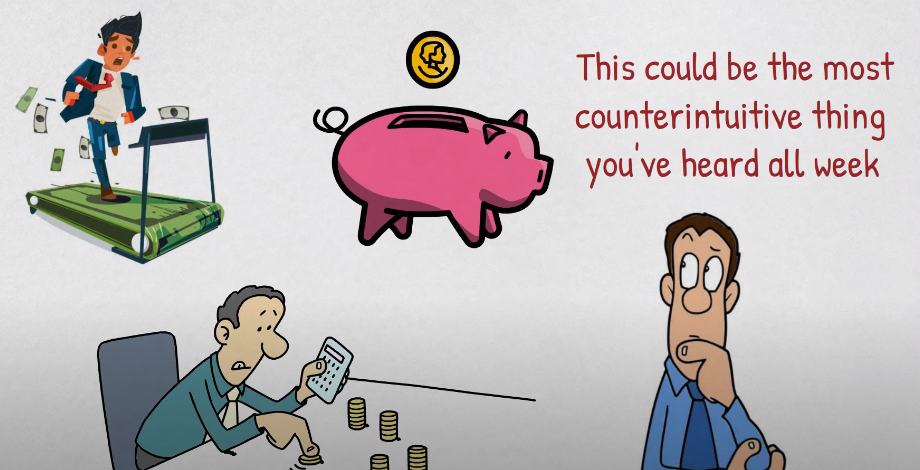Introduction
Sometimes we’re good at making excuses to buy stuff, like saying we need a new rug because it’s an investment for our home or buying shoes on sale thinking we’ll wear them a lot.
We might even buy fancy bakewear, hoping it’ll make us cook more at home, or a weight set because we’re determined to start working out.
I’ve been there, spending money on things that don’t really matter. But the truth is, we often need way less than we think.
In this article, I’ll be sharing with you 14 tips on how to finally quit overspending and buying unnecessary things.
1. Get rid of unnecessary subscriptions.

Many of us end up paying for stuff every month that we don’t really need, like those subscription fees for things we hardly use.
It’s easy for the money to just disappear from our accounts without us realizing it. To fix this, figure out what you really want versus what you truly need.
Make a list of all the things you subscribe to, see how much they cost over time, and cancel the ones you don’t need.
The same idea goes for spending money on things that aren’t necessary. Take a simple example, like buying an iced coffee every day.
Instead of spending a bunch on that, try making your own at home. It might not seem like a big deal, but it can add up quickly.
You can still treat yourself to the occasional cafe ice coffee, but don’t make it a regular thing.
2. Make it difficult to spend money.
Spending money is super easy in today’s digital world, and saying no to buying stuff can be really tough.
It’s not just about how easy it is to get things; it’s also about how simple it is to use our credit and debit cards.
To put the brakes on overspending, try cutting up your credit cards. They make it too easy to spend money you don’t actually have.
Getting rid of them from your wallet can help you slow down and think twice before overspending. Another idea is to bring all your bank accounts together in one place.
Having lots of debit cards can make things stressful and mess up your efforts to keep track of your spending in one clear spot.
Streamlining your accounts can make it easier to manage your money wisely.
3. Delay purchases
Before buying something, give yourself a 24-hour break. Put the items in your online cart and step away from your phone or computer.
It’s also a good idea to have a mental checklist. Ask yourself if you really need the thing or if getting it might end up causing more problems than good.
If you still really want it after 24 hours, you’ve also had time to figure out if it fits in your budget. This helps take away some of the impulse to buy on the spot.
4. Stop buying to feel good.
When you’re stressed, try not to spend money right away. Instead, step back and find something else that makes you feel good, like taking a walk, taking a long bath, reading a good book, or doing online yoga.
Stress shopping might feel good in the moment, but it can bring more stress later on if you end up spending more than you should.
Taking a breather and finding other ways to relax can be better for your overall well-being.
5. Make room for healthy spending.
Making a budget is like deciding what to eat. It’s good to have some room for treats, or you might end up going on a spending spree.
You can’t be too strict, and you should never buy anything for fun. Put some flexibility in your budget for occasional splurges.
If you’re too strict, you might get discouraged and go back to spending too much. Having a fun budget lets you enjoy buying something exciting without feeling guilty.
It’s like having a treat without wrecking your whole plan.
6. Find support.
Don’t go through it by yourself. Getting support and having someone hold you accountable can really help you avoid spending impulsively.
Have a check-in buddy once a month. This could be your partner, a friend, or someone else who’s also trying to be financially smart.
During these monthly check-ins, be open about how you’re doing and get feedback and support.
Working with a financial counselor or adviser is like taking care of your financial health.
We need to be honest and accountable to avoid getting into financial trouble. Having a professional to guide you can make a big difference in managing impulsive spending and building a healthy financial lifestyle.
7. Social media

Don’t spend too much time on social media. Avoid buying things on social media. Social media can make you spend on a whim because of targeted ads.
They know what you like and the influence of your friends on your spending habits. Be careful, as many of the ads might be scams promoting products that sound too good to be true or are from companies you’ve never heard of before.
Stick to trusted sources when making purchases to avoid falling for misleading ads or deals.
8. Cut costs on food
Spending money on food, especially when you’re hungry, can be really tempting and easy. Eating out, especially with drinks, costs a lot more than making your own meals at home.
Even though we need food and drinks, it doesn’t have to be a strain on our wallets. Save money in the long run by cooking large batches of food at home and freezing the leftovers.
It’s super convenient to defrost and heat up something you cooked weeks ago without all the prep.
Also, consider swapping expensive smoothies for tap water. These small changes can be good for your wallet.
Having a food plan and sticking to it helps too. When you go grocery shopping, make sure you’ve eaten beforehand.
Shopping on an empty stomach makes it more likely that you’ll spend too much. If you shop after a meal, you’ll focus more on getting the groceries you actually need.
9. Pay for expenses using cash.
Pay for expenses using cash, not credit. Start each month by putting cash in separate envelopes for different expenses.
You might have one for groceries, another for eating out, and one more for entertainment, for example. Once the cash in an envelope is used up, stop spending in that category.
This helps you keep track of your spending and make sure you don’t go over your budget for each expense.
10. Money equals time.
Before buying something, calculate how many hours you’ll need to work to afford it. Turning money into time adds a pause, making the cost more real and less like a vague idea.
This way, you can better understand the effort you’re putting in to pay for what you want and decide if it’s worth it.
11. Stop spending money on clothes.

Don’t wear. Have you ever had those days when you felt really confident and got lots of compliments on your outfit?
If you think about it, it’s not always because you were wearing something brand new. It’s more about looking good with what you have.
Maybe the color suits you, or the fit is just perfect. New clothes don’t always make us as happy as we think.
Sometimes they end up sitting in our closets unworn and gathering dust. What seemed perfect in the store might not be as exciting once we get home.
So feeling good about what you wear matters more than having something new.
12. Count your blessings
Being grateful, not just for things you own but also for people, places, and simple joys in life, is good for your soul.
But having an attitude of gratitude is also a proven way to counter impulse buying.
It makes you feel abundant inside, and when you’re full of gratitude, you’re less likely to try to fill emotional gaps by splurging on gifts and accumulating more stuff.
13. Try a no-spend challenge.
Taking on a no-spend challenge means committing to only buying essential stuff for a whole month. You focus on paying for things you really need, like utilities, car payments, and the mortgage.
This challenge pushes you to think carefully about your purchases. By deciding to cut out spending on unnecessary things, it encourages contentment with what you already have.
It’s a way to be more mindful about where your money goes and helps you appreciate what you have.
14. Be content with what you have.
In conclusion, it’s about finding joy in what you already have, being happy with what you’ve got, and focusing on what really matters.
It helps you resist the urge to spend money. You realize that material things won’t bring true happiness.
When we stop trying to show off or measure up to others, we start living with purpose. We become thankful for the little things and learn to value every moment, whether big or small, with the people we care about.




